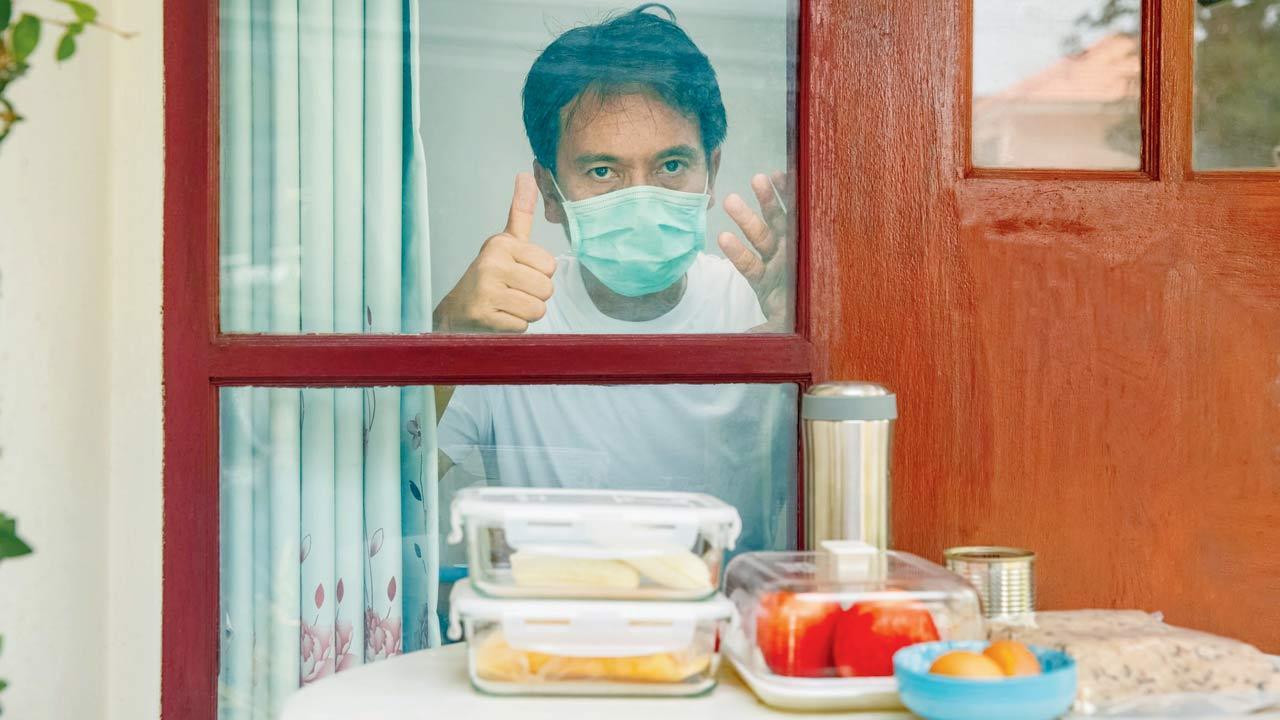With a video of a Canadian nurse strumming the guitar to the ICU ward going viral, we speak to mental health professionals on how COVID-19 patients can cope with isolation and recuperation

A man in quarantine
Grief, they say, comes in waves, and, as we now know, so does the virus. Each wave has left us mentally and physically drained, the experience and necessity of isolation and distancing only contributing to our suffering. That is why every little act of kindness counts. And last week, Amy-Lynn Howson, an endoscopy nurse at The Ottawa Hospital did something truly special. Standing at the doorway of an ICU patient’s room, she was seen serenading them to an original song titled You Are Not Alone. The video went viral and touched many netizens. It was also heartening to see that Howson’s act was not a one-time show; the nurse routinely employs her musical talent to bring comfort to patients.
ADVERTISEMENT
Amy-Lynn Howson, an endoscopy nurse at The Ottawa Hospital, strums and sings You Are Not Alone in front of the ICU ward
In a country like ours where reality is nowhere close to that of developed nations, as patients scramble for beds and oxygen, being diagnosed with the virus can be especially gruelling. If you are isolating and recuperating from COVID-19, city-based psychologist Preeti Asgaonkar and psychotherapist Rhea Gandhi, share how you can cope during this time.
Understand the impact: Quarantine can result in a variety of emotions that come in stages, according to Asgaonkar. “First, you may experience fear or anxiety, followed by denial and anger,” she states. Gandhi also shares that many people who are ill and isolating in a closed room witness the resurfacing of old, unprocessed trauma.
Distractions matter: Gandhi places value on distractions at a time when one becomes extremely body-focused. “You end up checking the pulse oximeter and thermometer more often than necessary. Being cautious and anxious sometimes overlap. So, be it watching Netflix or keeping in touch with friends, especially those who make you laugh, via SMS, video call or phone calls, distractions are crucial,” she says. Asgaonkar adds that what helps is to talk about anything that makes you feel good. “Engage in something that is unrelated to COVID-19. You could listen to music, read a poem or take to writing. Your brain needs mental exercise,” she states.
Preeti Asgaonkar
Maintain a gratitude journal: Every day, write what you are grateful for. If you don’t have a notebook, sheets of paper will suffice. And if you’re too weak to write at the moment, Asgaonkar advises spending some time actively thinking about it, and saying it out loud.
Seek professional help: To aid your mental well-being, Asgaonkar says that seeking help from a qualified therapist is the need of the hour. “Now is not the time to say, ‘I will manage it.’ You will manage it, but how? If you don’t have an answer to this, then you have to approach a psychologist — the same way you approach new medicines,” she shares.
Rhea Gandhi
Don’t aim to be productive: Gandhi asserts that isolation shouldn’t be turned into a productive time, which leads to a cycle of self-punishment. Focus your energy on recovery and connection instead. “All your body is trying to do is survive, so it’s in a fight-flight-freeze mode. You are not going to produce or emotionally process anything when your nervous system is in this place,” she maintains.
What not to say
Messages stating ‘Be strong’, ‘Don’t think negative’ and ‘This, too, shall pass,” to those who have tested positive may prove to be unempathetic. Instead, Asgaonkar suggests, simply drop in messages such as ‘Take care’ or ‘If you need anything, please call. I am here to listen.’
 Subscribe today by clicking the link and stay updated with the latest news!" Click here!
Subscribe today by clicking the link and stay updated with the latest news!" Click here!






